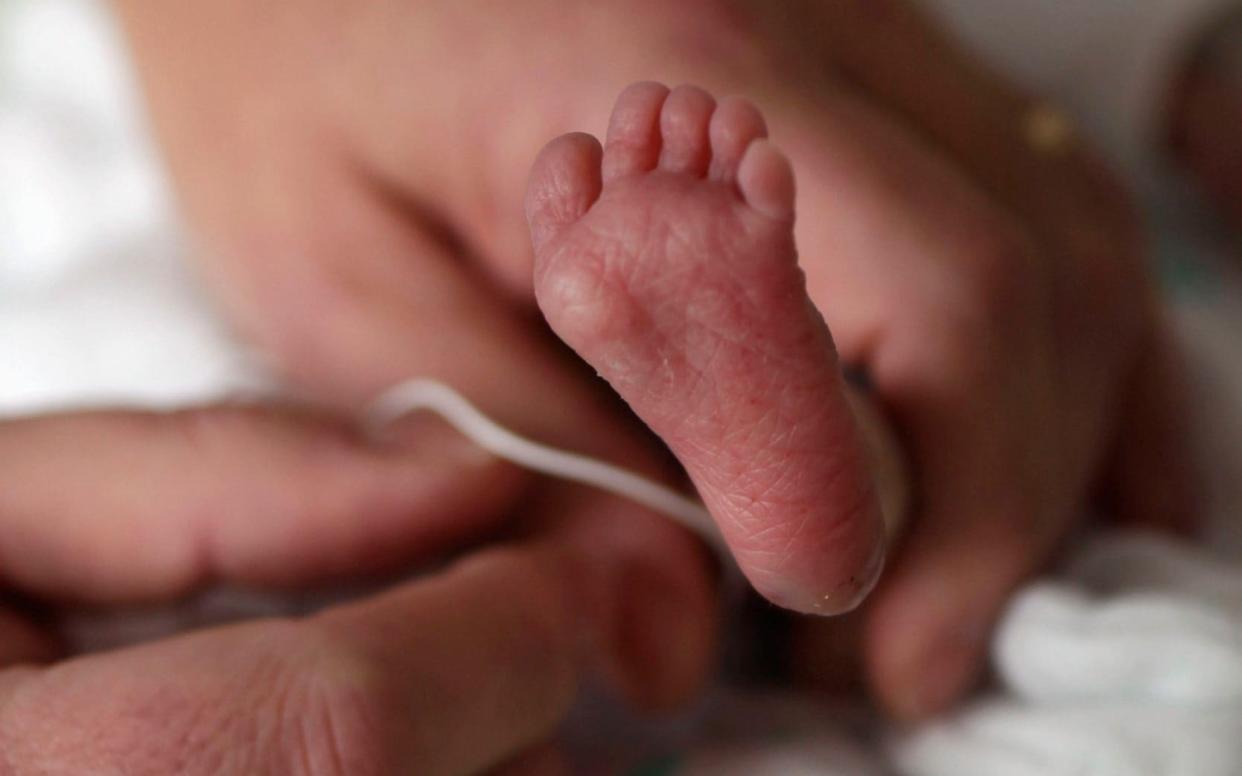Low birth weight makes Covid-19 patients three times more likely to have serious symptoms, study finds

Low birth weight makes Covid-19 patients three times more likely to suffer serious symptoms, a study has found.
Researchers in Spain analysed 400 patients aged between 18 and 70 who had been diagnosed with the virus.
Those who weighed 5.5 pounds or less when they were born (the low birth weight benchmark) had a 3.61 times greater likelihood of being admitted to intensive care, the results revealed.
They argue this means low birth weight should be on the checklist of things considered when deciding whether to admit someone to hospital.
Professor Sir Stephen O'Rahilly, director of the MRC Metabolic Diseases Unit at the University of Cambridge, said while it may be too early to add low birth weight to the list of risk factors for serious Covid-19 symptoms, such as obesity and type 2 diabetes, more in-depth studies should be carried out to explored the potential connection.
“This is a small study and therefore its findings are preliminary and need confirmation - other larger, ongoing studies examining risk factors for poor outcome should be stimulated to collect data on birth weight of affected people when possible," he told The Telegraph.
"Low birth weight is known to be associated with a range of metabolic and cardiovascular disorders, which themselves tend to worsen prognosis when Covid-19 strikes. So it would not be too surprising if this turns out to be a genuine association, albeit one that little can be done about in terms of therapy."
Dr Simon Clarke, associate professor in cellular microbiology at the University of Reading, agreed that a potential connection between birth weight and Covid-19 symptoms should be probed.
"This is a relatively small study, but the finding warrants further investigation," he said.
"How much use this is in the UK is questionable as many people do not have their birth weight recorded in their medical records, so it would not be information easily available when someone is admitted to hospital."

Babies are weighed at birth and then at increasingly longer intervals in the following months.
Low birth weight increases the risk of childhood mortality and developmental problems, as well as being associated with poorer health in later life, according to the NHS.
Babies who weigh 5.5 pounds or less when they are born have usually been delivered before the full term of 37 weeks. An estimated 1 in every 13 babies born in the UK are premature.
Professor Karol Sikora, an oncologist and chief medical officer at Rutherford Health, suggested that the body's immune defence systems could be weakened if a baby does not develop correctly in the womb.
This is echoed by the researchers, who said that an "adverse" environment in the uterus causes "permanent changes in the structure, function and metabolism" of developing organs, which can then result in illness in adulthood if a "second hit" such as Covid-19 strikes.
"Most developmental changes of early life persist in the long term which leads to a greater risk of disease in adulthood," the study states.
"It is suggested that fetal adaptation to perinatal events represents a ‘first hit’ leading to latent susceptibility, which combined with a ‘second hit’ later in life could increase the risk for adult diseases."
It concludes: "Low birth weight increases the risk of severe Covid-19 in non-elderly adults. This new information further supports the importance of early life events in adult diseases and should be considered in future risk stratification algorithms."
To view the study, which is yet to be peer reviewed, click here.


